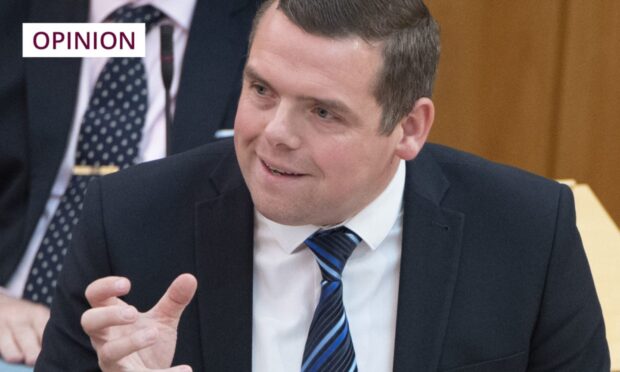Perhaps the most surprising consequence of 2014’s independence referendum was the rebirth of the Scottish Conservatives.
After decades of decline, the Tories began to rally. While Labour struggled to settle on a post-Indyref message, the Conservatives repeated – loudly and clearly – their opposition to a second vote on the constitutional question.
This worked: under the leadership of Ruth Davidson, the Scottish Tories pushed Labour into third place in the polls. There was even – highly optimistic – talk of Davidson as a future First Minister.
Davidson, the sort of Tory who elicits opinion of the “I’m not a Conservative but you’re okay” variety, established herself as the champion of the Union.
How swiftly times change. Ruth – now Baroness – Davidson stepped down as Scottish Conservative leader in 2019.
She’d previously been fairly open about her disdain for Boris Johnson and, now he’d become Prime Minister, she couldn’t see a way of working with him.
Though absolute clarity about opposition to a second independence referendum was key to the Scottish Conservatives’ resurgence in the polls, Davidson’s ability to challenge the popular mantra that “all Tories are the same” shouldn’t be underestimated.
Now, the sort of Tories – the right-wing cranks and Libertarian ideologues – long rejected by the majority of Scottish voters, dominate our politics. Support for the party has plummeted across the UK.
Labour has forced Scottish Tories back into poor third place
Labour’s Sir Keir Starmer is on what looks like an unstoppable march towards victory and, here in Scotland, the party – under the leadership of Anas Sarwar – has not only forced the Tories back into a poor third place, but is also now neck-and-neck with the SNP.
The Scottish Tories depended upon the constitutional question for their success.
While the prospect of a second referendum loomed, their clear message resonated with a substantial number of No voters. But the constitutional question is answered.
The SNP accepts a court ruling that the Scottish Government has no authority, under any circumstances, to hold a referendum on leaving the UK.
The Scottish Tories may be on the winning side of that battle but I daresay they’d have preferred the question to have remained open.
Victory brings with it the loss of the party’s key campaign message.
If it’s tough being a Scottish Conservative now, it’s going to get a lot tougher after the general election, which is expected to be held late this year.
If, as looks all but certain, Starmer reclaims the political centre ground, what will be left of the Tory Party in the House of Commons will be a rump of right-wingers, many representing constituencies where populist scaremongering about immigration or equality strikes a chord with voters.
Standing here, it’s impossible to see any scenario where the post-general election UK Conservative Party doesn’t bear right.
I mean, look at the front-runners to succeed Rishi Sunak when he falls on his sword.
Where, but right, would the Tories go under a new leader?
Where but right would the Tories go under Kemi Badenoch, Suella Braverman, Priti Patel, or Penny Mordaunt?
This is going to be a grim year for Scottish Conservative leader Douglas Ross. Labour is going to win the election and what’s left of his party at Westminster is going to be a miserable rump of the sort of little Englander Tories so disdained by Scots.
Of course, the central purpose of devolution is to allow politicians in Scotland to make their own decisions so Ross will feel free to break step with colleagues at Westminster.
But how many times is he going to have to distance himself from the policies of a right-wing UK Tory Party pandering to a membership obsessed with immigration and Brexit “betrayal”?
During the 2011 contest – won by Davidson – to succeed Annabel Goldie as leader of the Scottish Tories, contender Murdo Fraser suggested dramatic action was needed if the party was ever to overcome negative associations with UK governments unpopular with Scots. Fraser suggested the establishment of a new centre-right party, independent of the UK Tories.
Back then, Fraser’s “Vote for me to abolish our party” message didn’t convince Conservative members.
I wonder whether, as the populist authoritarian right moves closer to seizing full control of their party, it’s time for them to think again.
There is a market in Scotland for a centre-right party, clear on the constitutional question but primarily concerned with the question of economic growth.
Scottish Tories should revisit Murdo Fraser’s proposal. As the Conservative Party slides further right, it may be time for its Scottish members to cut ties.
Euan McColm is a regular columnist for various Scottish newspapers


Conversation